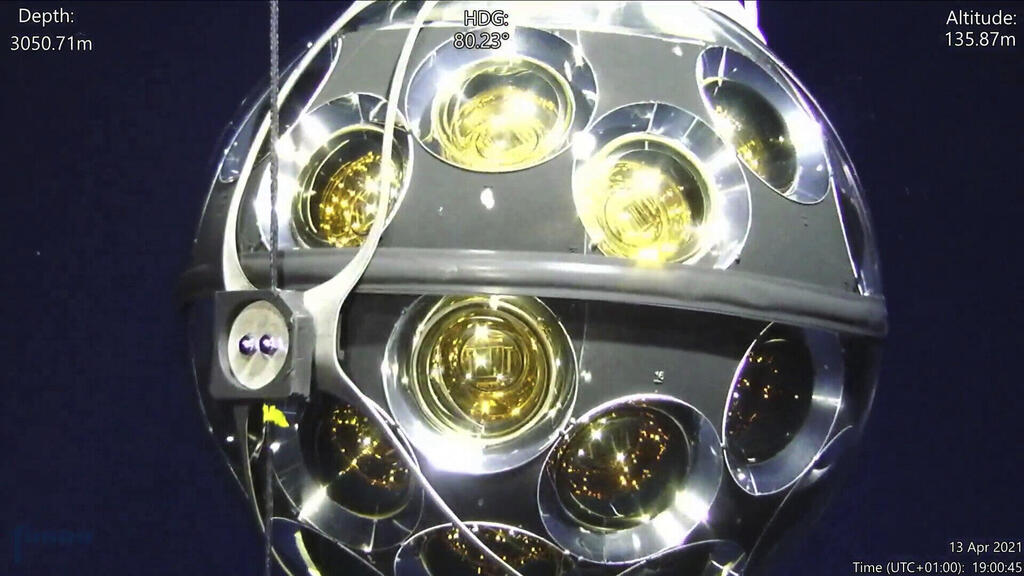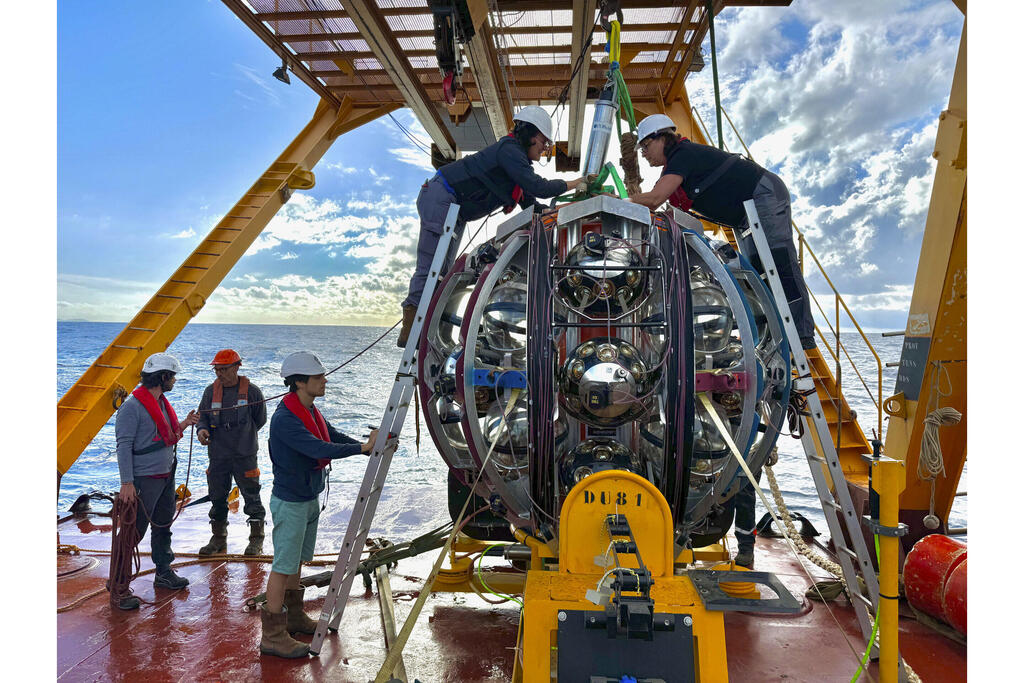Getting your Trinity Audio player ready...
A groundbreaking discovery in particle physics has been overshadowed by academic politics after an Israeli physicist was removed from an international research team. The study, published in Nature, details the detection of an ultra-high-energy neutrino—dubbed the "ghost particle"—in the Mediterranean Sea. This neutrino, with energy levels 30 times higher than the previous record, represents a major milestone in astrophysics.
Professor Dafne Guetta, a physicist from Ariel University, was part of the research team that made the discovery. However, following the October 7 terror attack on Israel, several academic institutions imposed a boycott on Israeli researchers, leading to her removal from the project.
"We have known about high-energy particles since the discovery of cosmic rays, which are made of protons—charged particles that can be deflected by magnetic fields on their way to Earth," Guetta told Ynet. "This makes it difficult to trace their origins. Neutrinos, on the other hand, are neutral and unaffected by magnetic fields, traveling in a straight line from their source. This makes them invaluable messengers carrying pure information from distant cosmic events."
To identify the origins of these high-energy neutrinos, researchers analyze astronomical data in optical and ultraviolet (UV) wavelengths. One possible source is celestial objects emitting high-energy photons, such as active galaxies like NGC 1068. However, these photons may be absorbed by their surrounding environment, complicating observations.
"To overcome this challenge, we must use alternative observational methods and open new 'windows' into the sky," Guetta explained.
Guetta’s research was conducted at Ariel University’s AGASS research center, which specializes in space studies and advanced data analysis tools. As an integral part of the international research team that detected the neutrino, her expertise was crucial. Yet, following the October 7 Hamas terror attack, the governing body of the KM3NeT detector project removed her from the collaboration, despite her scientific contributions.
Get the Ynetnews app on your smartphone: Google Play: https://bit.ly/4eJ37pE | Apple App Store: https://bit.ly/3ZL7iNv
"There is no place for discrimination in science," Guetta said. "Even if I am no longer part of this consortium, this discovery is significant and has the potential to open new doors in high-energy astrophysics and fundamental physics. This is why I wanted to become a physicist at 15 years old. I truly hope things will change and that politics will no longer interfere with scientific progress."
Looking ahead, Guetta’s research team is analyzing optical data to explore connections between radiation emissions and neutrino sources. She highlighted Israel’s crucial role in this field, particularly with the upcoming launch of the ULTRASAT satellite, which will aid in detecting high-energy neutrino sources.
"ULTRASAT will allow us to observe cosmic events in real-time and identify potential sources of these elusive particles," she said.
Despite contributing to the research, Guetta’s name was omitted from the Nature publication, which lists dozens of scientists from around the world.
The discovery of this neutrino marks a significant step in understanding the physical processes occurring in deep space. By leveraging advanced technology—from deep-sea detectors to space-based observatories—scientists are moving closer to unraveling the mysteries of cosmic rays and high-energy astrophysics.




